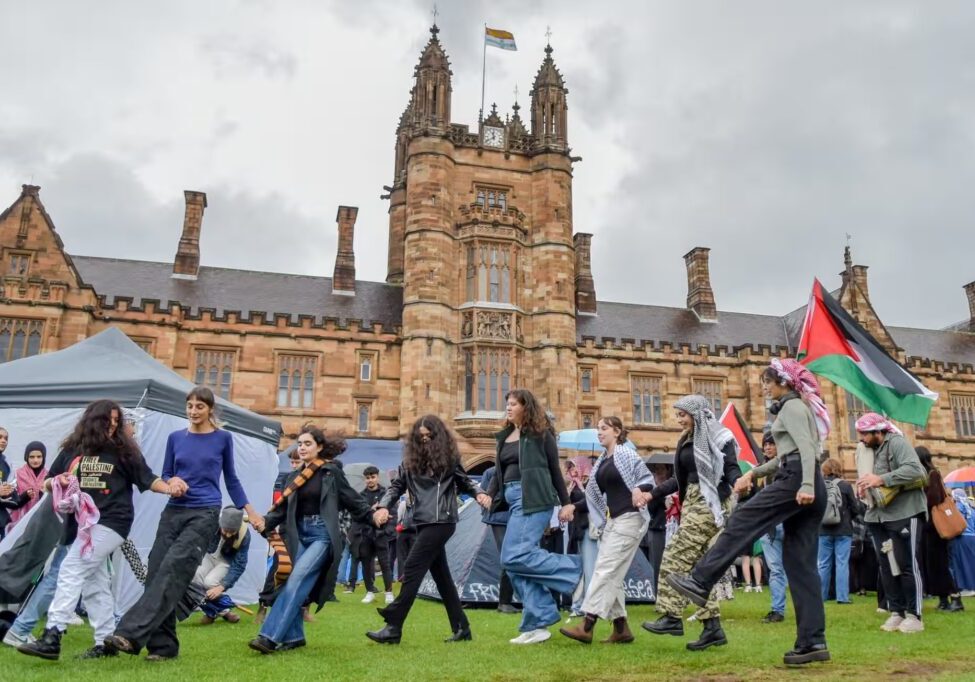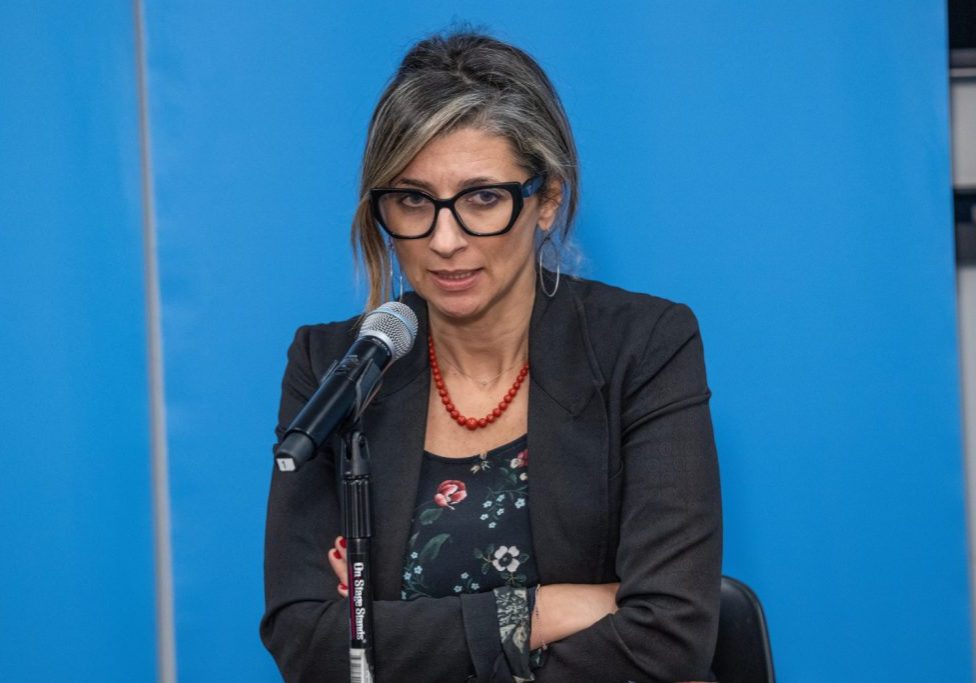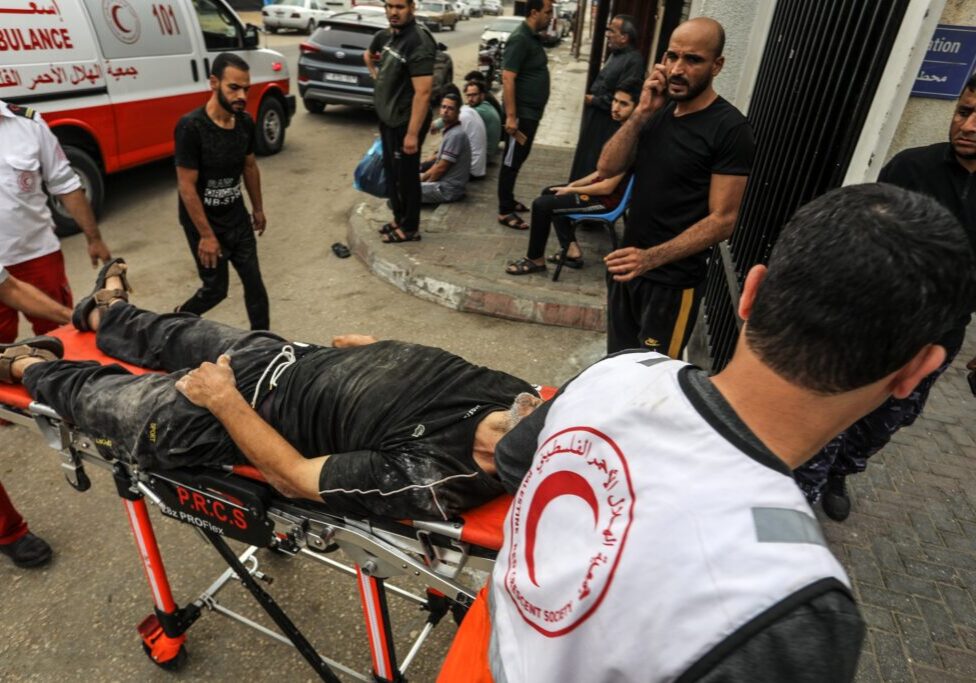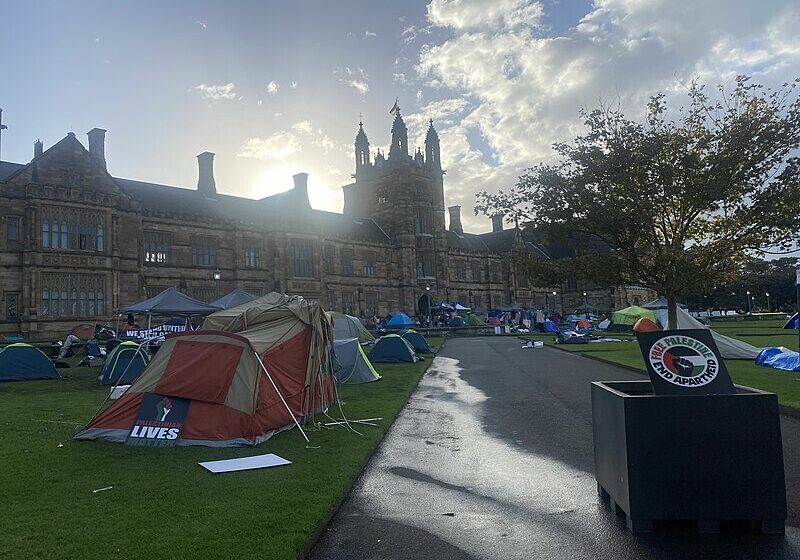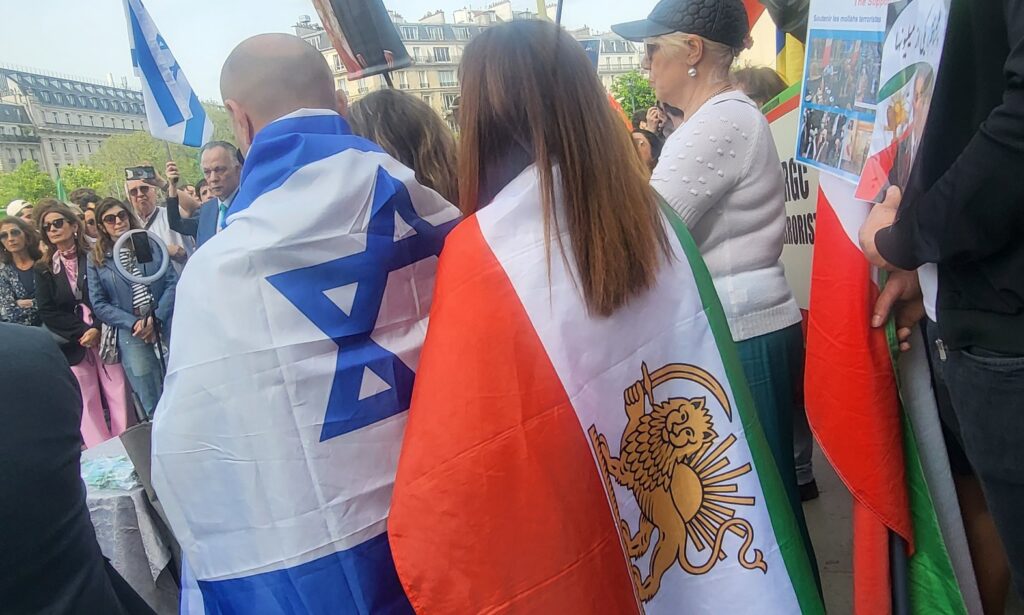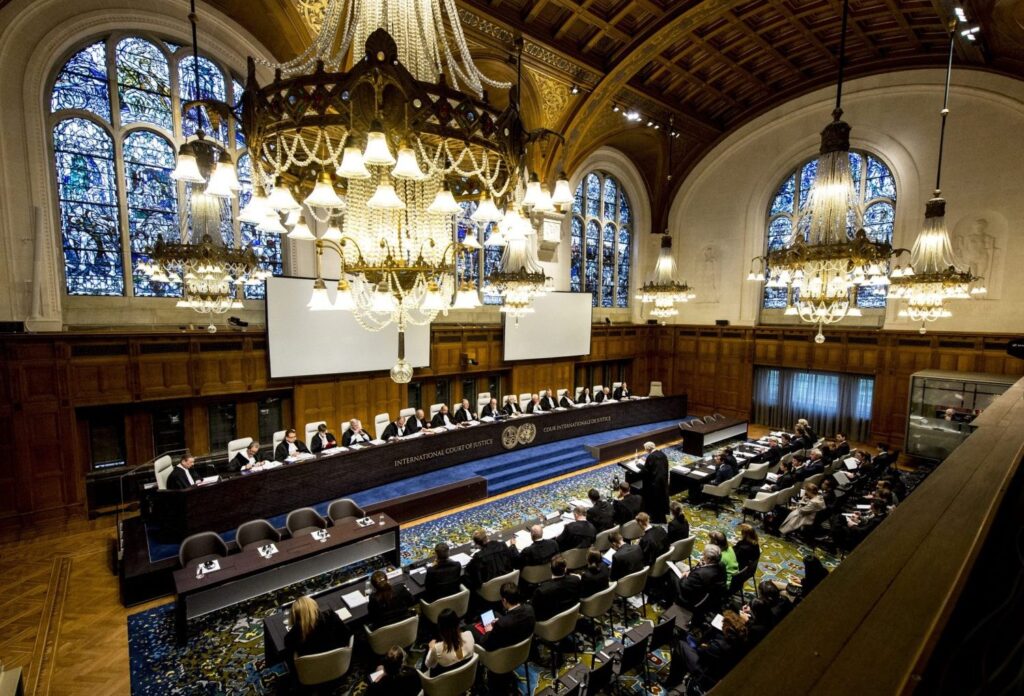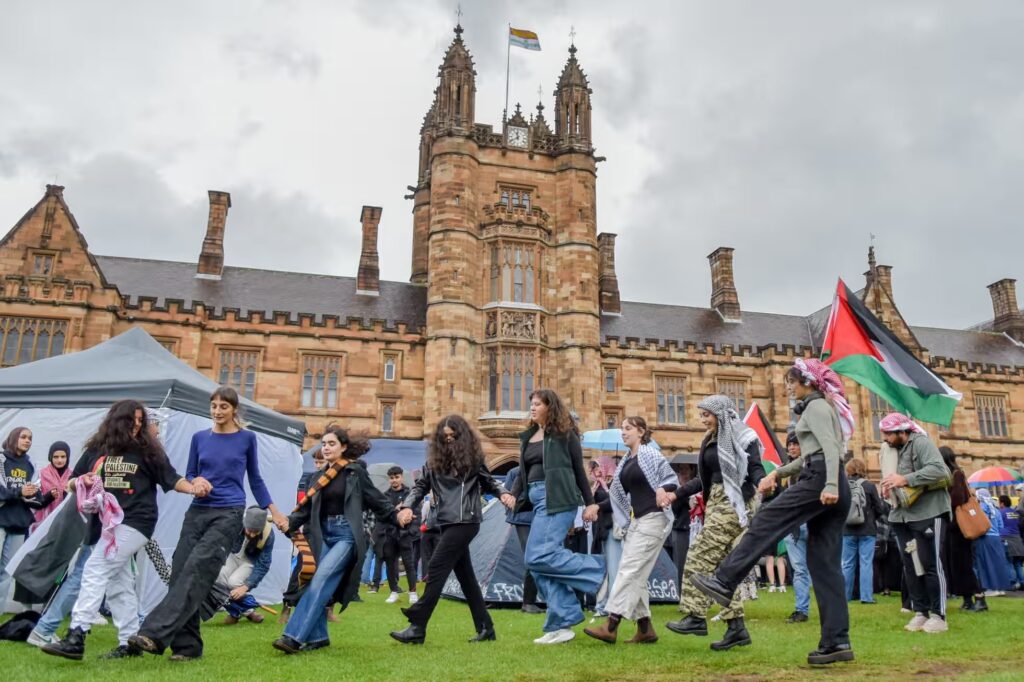IN THE MEDIA
Be wary of Iran, silent partner in the anti-West club
Jul 21, 2022 | Oved Lobel
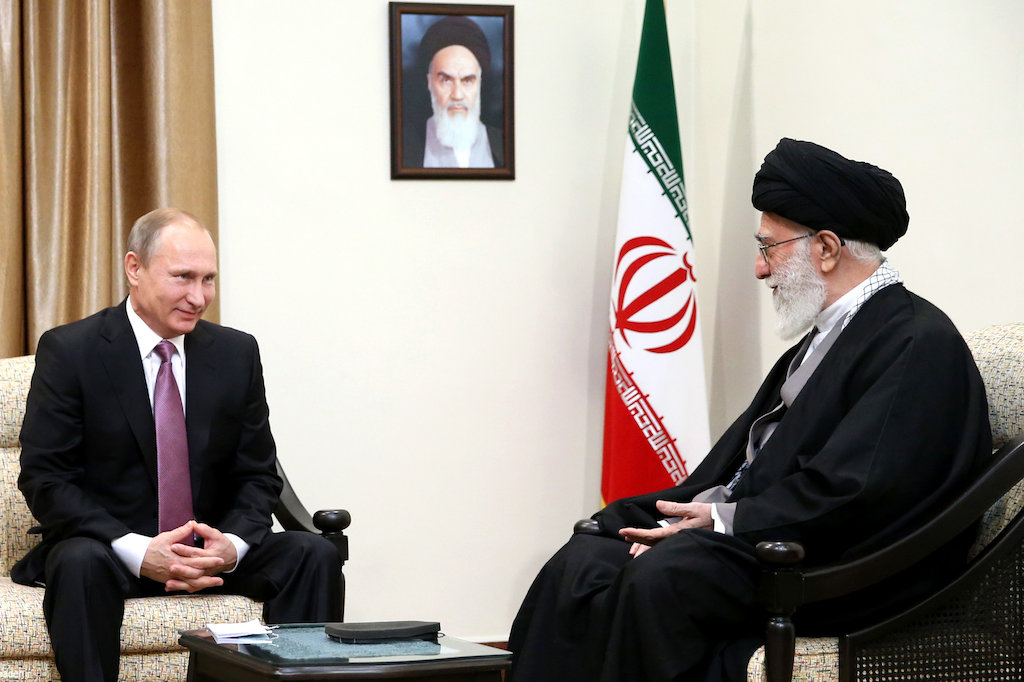
The Australian – 21 July 2022
Vladimir Putin is visiting Iran this week, only his second trip abroad since he invaded Ukraine and a testament to how important this relationship is to Russia.
Already, the National Iranian Oil Co and Russia’s Gazprom reportedly have signed a multi-billion-dollar memorandum of understanding on energy investment, while the Russian President won explicit backing for his invasion of Ukraine by Iran’s Supreme Leader, Ali Khamenei.
It has been recognised on a bipartisan basis in Australia that it is no longer possible to compartmentalise the challenge from Russia and China. The previous and current federal governments committed to sending military aid to Ukraine while warning about the “no limits” partnership between Beijing and Moscow.
This was why Ukraine was an area of focus for the otherwise Pacific-oriented Quadrilateral Security Dialogue in February and why in June NATO for the first time declared China one of its strategic priorities – reflecting the lack of daylight between Russia and China on NATO, AUKUS, Taiwan and almost every other international issue. But this imperial entente has at least one other dangerous member: Iran.
On July 16, CNN reported that a Russian delegation visited Iran at least twice in June and again in July to view a demonstration of Iran’s Shahed-191 and Shahed-129 drones.
US national security adviser Jake Sullivan had told reporters earlier that “the Iranian government is preparing to provide Russia up to several hundred UAVs (unmanned aerial vehicles), including weapons-capable UAVs, on an expedited timeline”.
This follows dozens of cargo flights to Russia linked to Iran’s Islamic Revolutionary Guard Corps, tracked by Twitter analyst @Gerjon_ since April.
From the 1980s, particularly since the collapse of the Soviet Union, Moscow and Tehran have been strategic allies and mutually reinforced elements of one another’s imperial projects, first in Afghanistan, then in Syria and Venezuela and now, it seems, in Ukraine. Unfortunately, a longstanding delusion that a wedge can be driven between them, or between Russia and China or China and Iran, persists.
The glue holding this partnership together is hatred of the US and its global alliance system, which to an extent has frustrated their respective imperial ambitions and ideological goals. In recent times it has become more than apparent that regional conflicts and issues that previously were viewed as independent must be viewed holistically by policymakers if there is to be any hope of addressing them effectively.
Not only has China almost single-handedly kept Iran afloat through energy purchases despite crushing sanctions, it is also, via its illicit proliferation agent Karl Lee (Li Fangwei), “the most important overseas supplier of items and material for Iran’s missile program”, which has “contributed to Iran’s continued development of more sophisticated missiles with improved accuracy, range, and lethality”, according to the US State Department. In March last year, China and Iran signed a 25-year strategic accord covering economic, military and security co-operation to the tune of several hundred billion US dollars.
Russia and Iran are negotiating their own 20-year comprehensive co-operation agreement, an update of one that has existed since 2001. China, Russia and Iran also have deepened trilateral military co-operation and exercises, and China and Russia jointly have used their privileged position as members of the UN Security Council to paralyse international responses to global crises and to protect anti-Western regimes from condemnation.
Even on Australian soil, these countries attempt to help one another militarily. In 2017, for instance, The Sydney Morning Herald revealed that a Sydney-based “Hezbollah functionary” had brokered an arms deal between China and Iran and its clients in 2011. More recently, two Queensland-based businessmen, one Russian, one Chinese, were arrested and are being charged with trying to organise the transfer of weapons from Russia to China in 2018.
While Russia receives all the attention, Iran has a global presence and regional empire that is no less disruptive or dangerous than that of its ally and it is by no means a junior partner. This is particularly the case as Iran crosses the nuclear threshold, with Khamenei’s senior adviser Kamal Kharrazi recently stating, “Iran has the technical means to produce a nuclear bomb but there has been no decision by Iran to build one.” Iranian drones and other capabilities are turning up in Venezuela as well, as the Islamic Revolutionary Guard Corps seeks to transplant its asymmetric capabilities from the Persian Gulf to the Caribbean.
More proliferation is sure to follow, particularly if Iran does opt to develop nuclear weapons.
While Australia’s focus is rightly on the Chinese threat in the Pacific, Australian officials and analysts understand the need to help Ukraine combat Russia, and that the two problems are intertwined. Yet, strangely, Iran often is left out of the discussion, even though it’s clearly a core partner in the combined effort to undermine and displace the US and its allies and associated ideas of democracy and human rights.
Iran’s intention materially to support Russia’s invasion of Ukraine ideally will rectify this oversight. Australia and its allies do not have the luxury of focusing on Russia or China alone, and they certainly don’t have the luxury of ignoring Iran.
Oved Lobel is a policy analyst at the Australia/Israel & Jewish Affairs Council.

